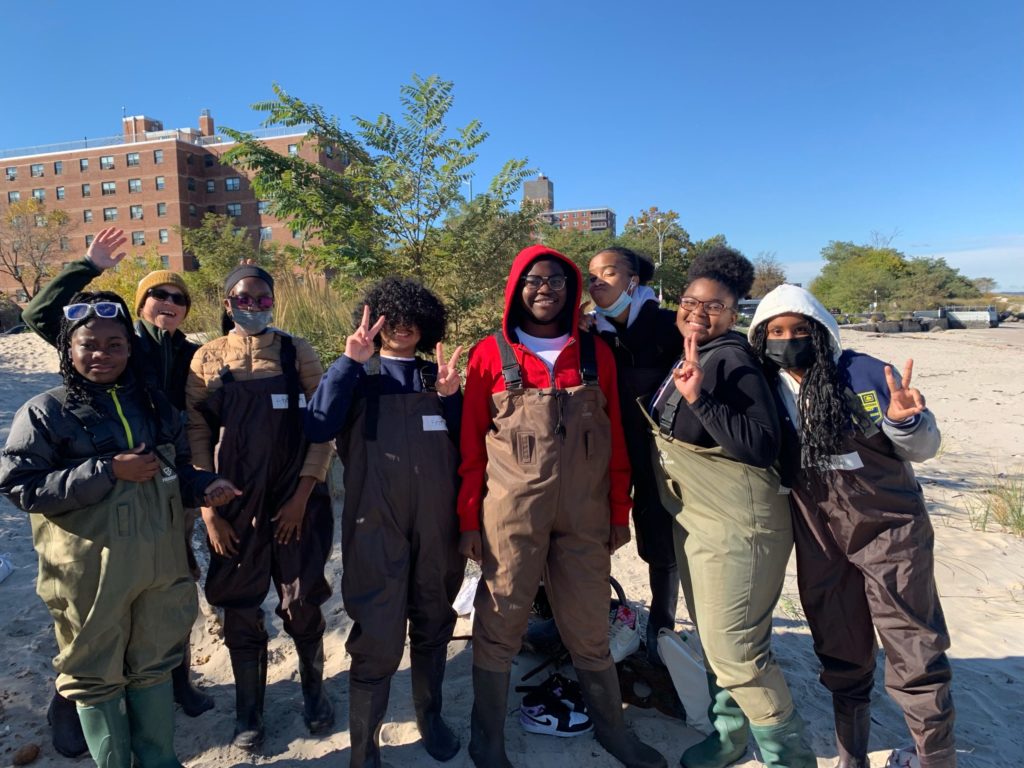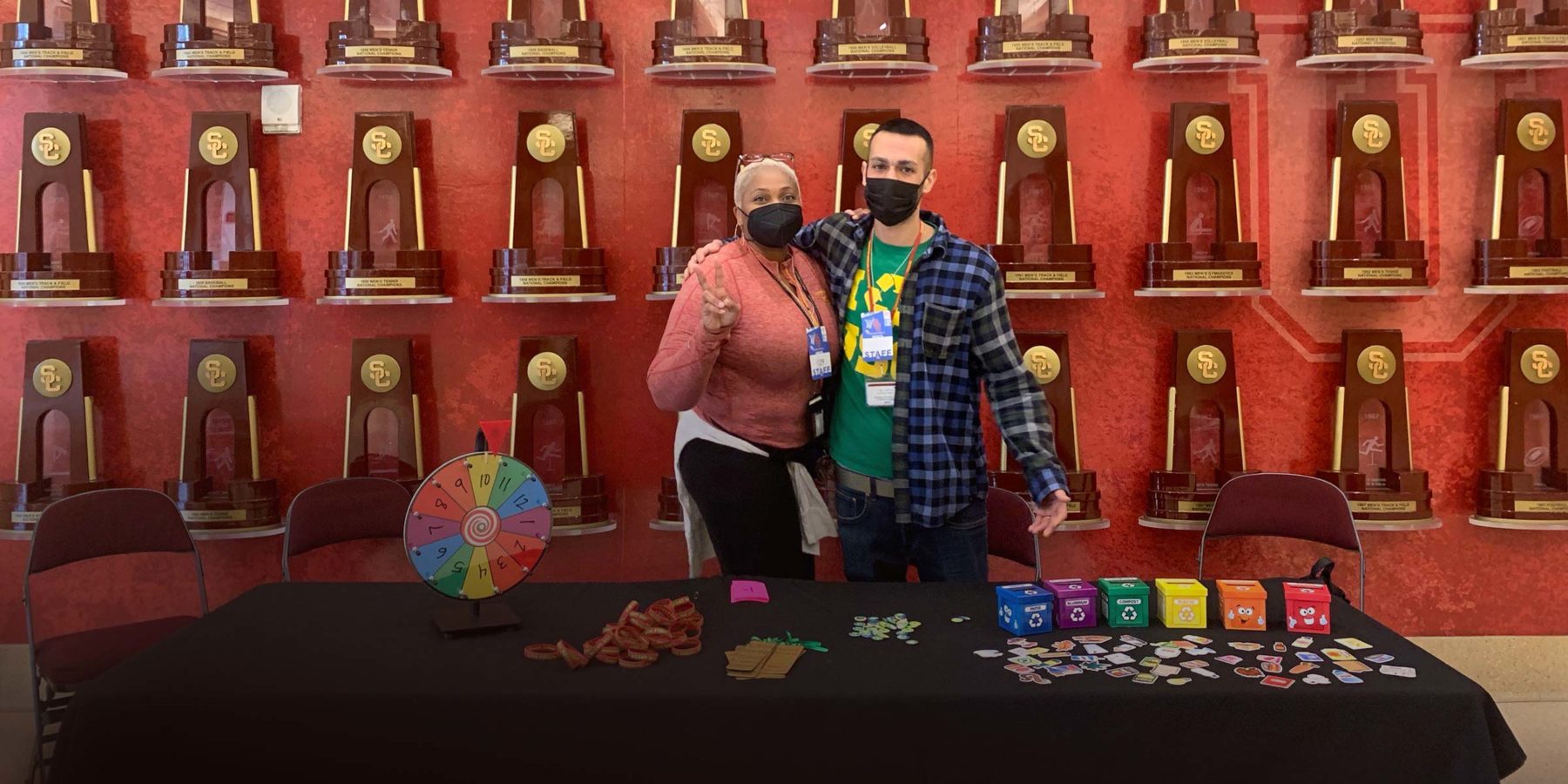Leaving a Legacy that Matters
At the heart of the National Wildlife Federation’s work is a desire to leave a legacy to future generations of thriving wildlife, protected natural resources, and open access to cherished landscapes. If we are to succeed, we must engage our youth to inspire, equip, and support future conservation leaders.
The Choose Clean Water Coalition is an incredible example of how the Federation works through authentic partnerships to inspire the next generation of environmental leaders while also conserving and restoring a true national treasure, Chesapeake Bay. The Coalition directs an innovative program to help close the racial diversity gap that exists within the Chesapeake Bay restoration movement.
Throughout the Federation, we design many programs to intentionally engage students and young professionals, to remove barriers to entry, and to reveal the many opportunities to become a lifelong conservation advocate.
Drew Robinson
Attracting young people to pursue green jobs is another way we are leaving a legacy. Our sixth EcoCareers Conference 2022 inspired and informed secondary and higher education youth about “green careers.” Key speakers discussed their professional journeys and careers in environmental justice, health and wellness, urban planning, and environmental education.
Race to Zero Waste
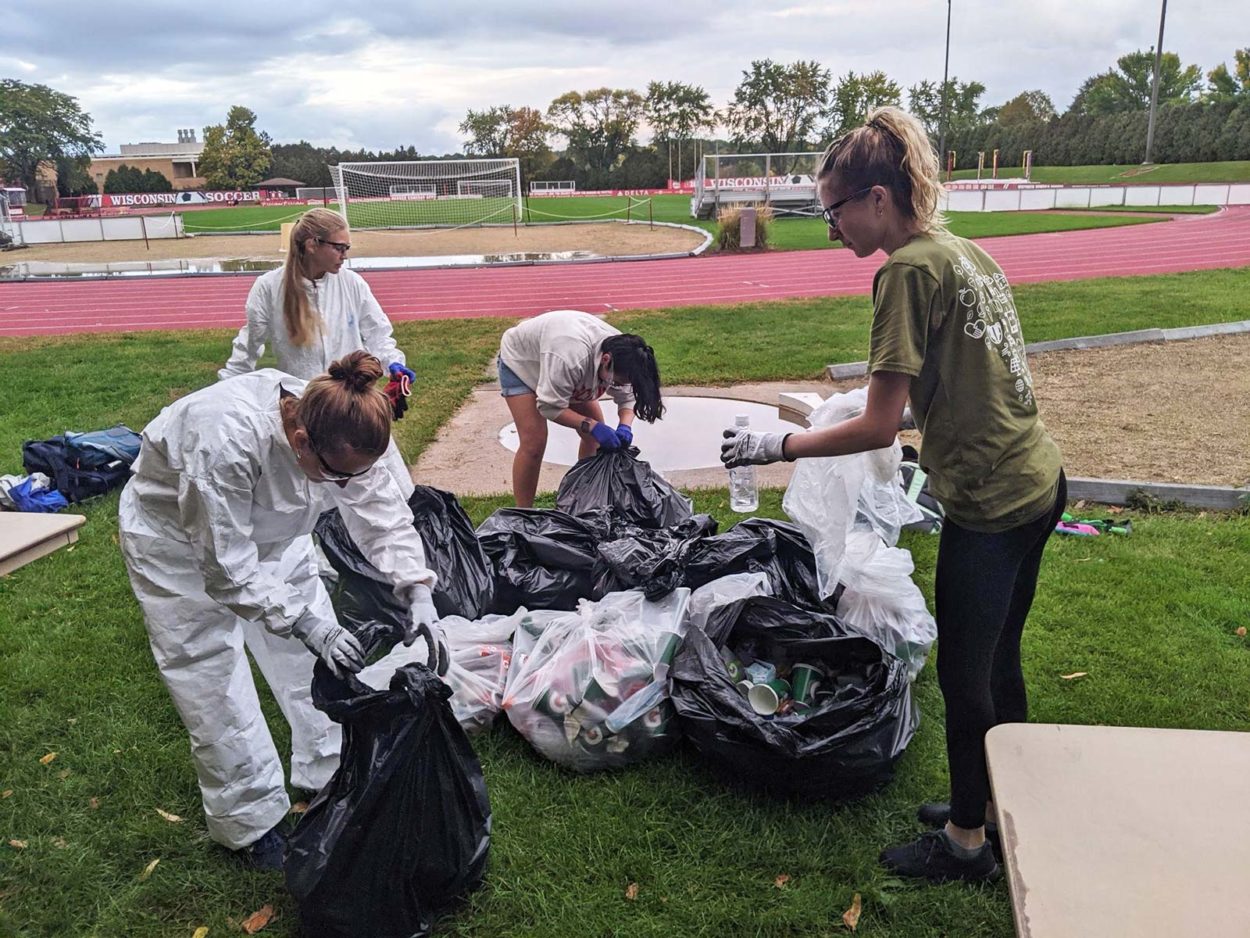
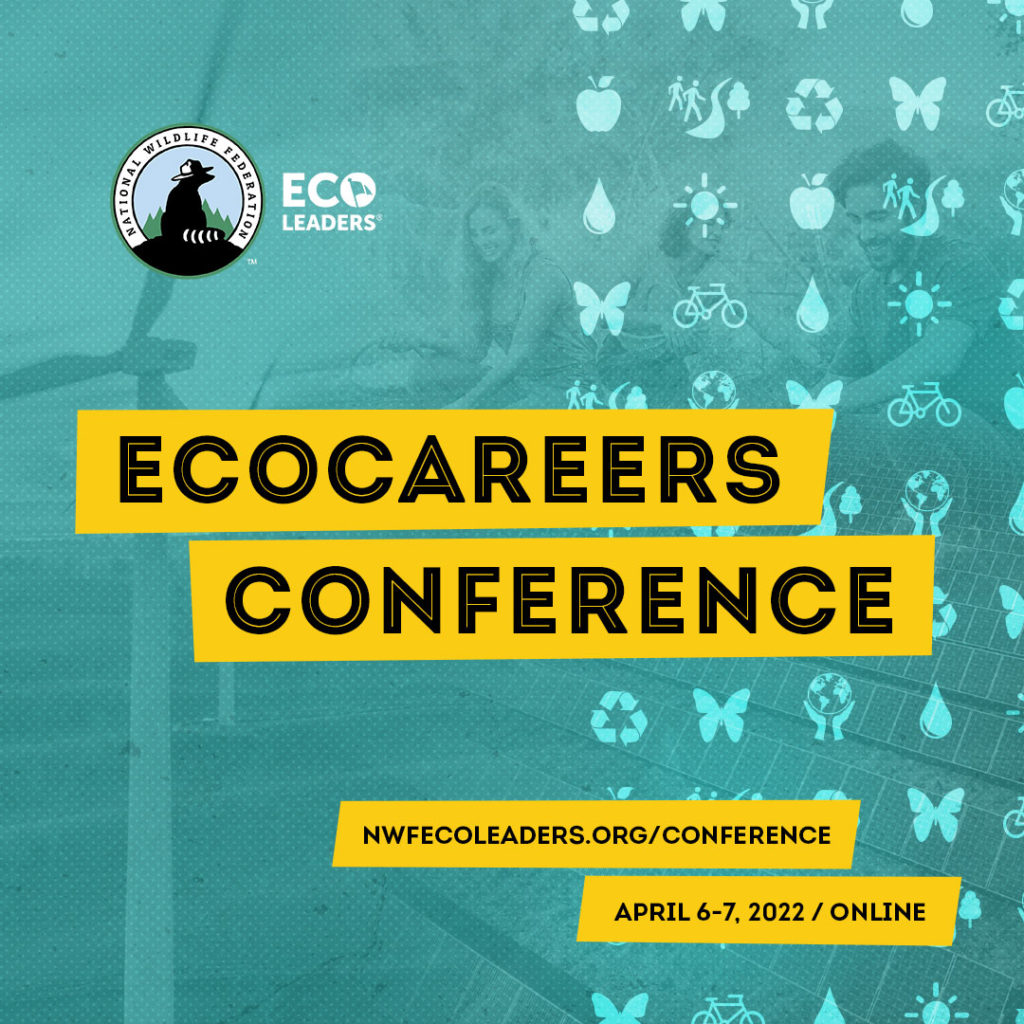
ECHO Brings Outdoor Play & Learning to Detroit
The Federation’s Early Childhood Health Outdoors (ECHO) initiative partnered with IFF, a community development financial institution, Brightmoor Quality Initiative, a group of female entrepreneurs and childcare owners in Detroit, and the Great Lakes Regional Center to support outdoor learning for children in Detroit. ECHO provides landscape design assistance and professional development resources to childcare programs to develop outdoor learning environments that include features like gardens and native foliage, ensuring access to opportunities for daily interaction with nature. Through the co-creative design process and professional development, ECHO brought services to eleven early childhood education centers and home-based care providers in the Brightmoor neighborhood. The partnership has reached hundreds of children and their families addressing some of the long-standing neglect of early childhood facilities in Detroit.
Photo Credit: Courtesy of ECHO
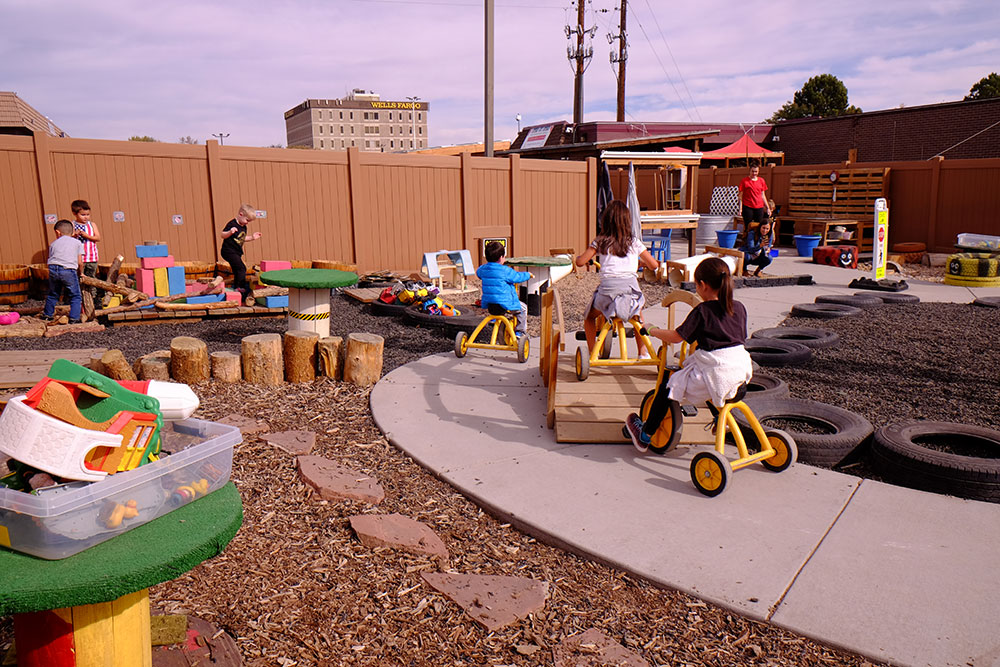
Sixth Annual EcoCareers Conference
Young people may not be aware of the diverse and exciting careers available within conservation and sustainability. We hosted our sixth EcoCareers Conference 2022 to inspire and inform secondary and higher education youth about “green careers.” Students heard from and interacted with representatives from the Federation, businesses, organizations, and governmental bodies. Panels of speakers representing a variety of careers discussed their own professional journeys within four key sectors: environmental justice; health and wellness; urban planning; and environmental education.
Photo Credit: National Wildlife Federation
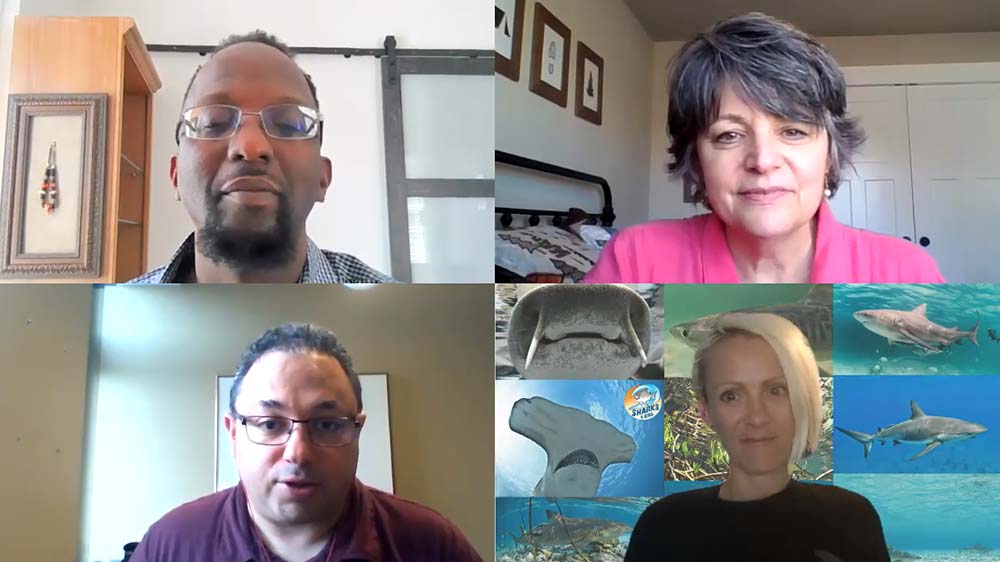
Campus Race to Zero Waste
The Campus Race to Zero Waste competition, managed by the National Wildlife Federation, is an annual competition for colleges and universities in North America to reduce their waste footprint through minimization efforts, including sustainable purchasing, reuse, single-use plastics bans, campus-wide adoption of reusable products, and education and awareness around responsible recycling. In the 2022 competiton, more than 3.6 million college students and staff across 200 campuses competed in the Race. Their efforts resulted in more than 27.9 million pounds of waste being donated, composted, or recycled. Thanks to the Race, campus participants kept more than 200 million single-use plastic containers out of landfills and prevented the release of 30,288 metric tons equivalent of carbon dioxide into the atmosphere, equal to avoiding the annual emissions from 6,376 cars.
Photo Credit: University of Michigan Ann Arbor
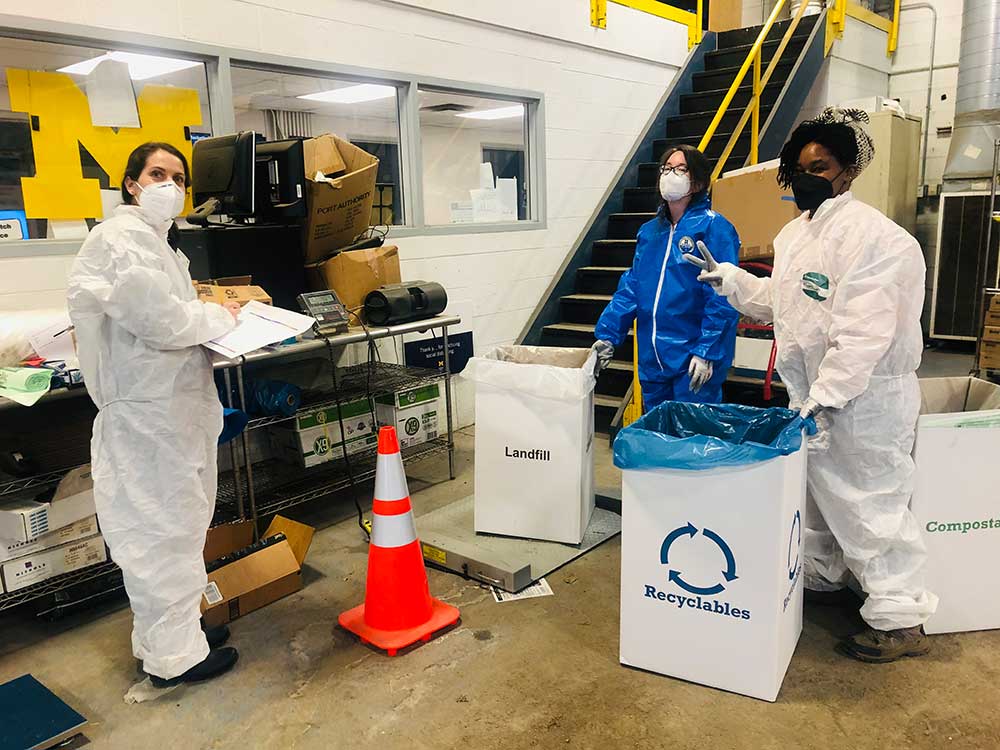
Middle and High School Climate Education
Our two climate-change education programs for middle and high school students—Resilient Schools Consortium (RiSC) and Student Climate Resilience Ambassadors (SCRA)—provide more than 50 hours of free lessons, activities, and field trips. In New York City, RiSC has educated thousands of students and community members about climate justice and resilience solutions. In 2022, students from 9 NYC public schools planted 10,000 beach grass culms to stabilize the dunes in Coney Island, Brooklyn, a frontline community devastated by Superstorm Sandy. They measured projected sea level rise at the shoreline, and learned about coastal infrastructure features like rip rap, sea walls and salt marshes. In Texas, (SCRA) worked in the city of Houston – another frontline community, where three inches of rainfall can overwhelm the drainage systems and cause flooding. During six community action days, SCRA helped students develop habitat for wildlife along 3.5 acres of the Sims, Buffalo, and Greens Bayous. This included 3,500 native prairie plants and 500 trees. Students learned how to create natural infrastructure such as rain gardens to help protect their homes and community from severe floods and polluted water.
Photo Credit: Emmy Lee
